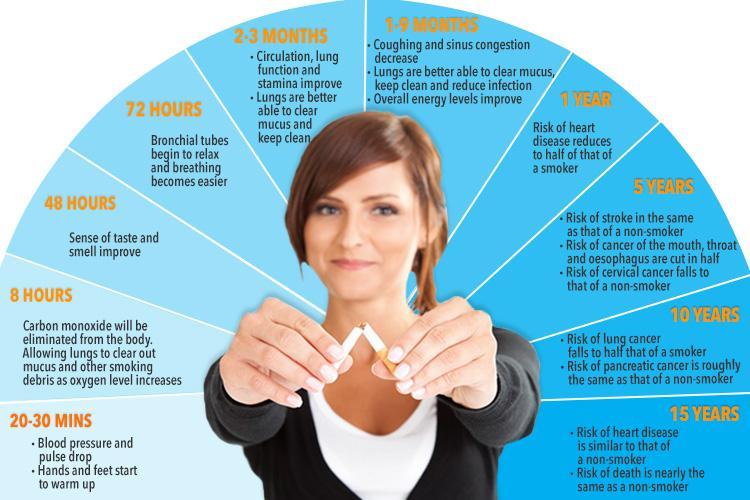CANCER, heart disease, infertility and trouble in the bedroom – smoking can cause them all and is undoubtedly bad for health.
Yet, despite being armed with this knowledge, it can still seem impossible to stop.

Millions choose to light up every day across the globe, while eight million die of smoking related illnesses every year.
Around one in seven people in the UK smoke, according to the Office for National Statistics.
This goes up to one in five in the age band 25 to 34 years old.
But more than half want to quit.
Today is the start of the annual Stoptober, so what better time to kick the habit for good?
The month-long campaign aims to help people stop smoking by encouraging them to stay off cigarettes for 28 days and observe how much better they feel.
It may seem like a daunting task, especially if you feel like you need fags to get through your day.
But stop for just 28 days and you’re five times more likely to quit for good.
That’s not long in the grand scheme of things.
So, what are the benefits of quitting, and how quickly can your health recover – if ever.
Step by step, we reveal what happens to your body when you quit smoking.
20 TO 30 MINUTES
In the aftermath of stubbing out your smoking habit for good, the health benefits are almost immediate.
Twenty minutes to half an hour after resolving to turn your back on cigarettes for good (probably for the umteenth time) your blood pressure will fall and your pulse will drop.
And your hands and feet will start to warm up as circulation improves.
8 HOURS
Eight hours into quitting, and no doubt itching to light up, console yourself with the fact that your lungs are already starting to clear themselves of the debris left behind from smoking.
Carbon monoxide is eliminated from the body, therefore allowing the lungs to clear of mucus as oxygen levels increase.
48 HOURS
Two days in and an ex-smoker’s sense of taste and smell will improve.
72 HOURS
Three days down and it benefits should become more obvious.
The bronchial tubes in the lungs begin to relax, making breathing easier.
2 TO 3 MONTHS
If you have managed to last two months, the good news is that circulation and lung function will improve, as well as your stamina.
The lungs are better able to clear mucus and keep clean.
1 TO 9 MONTHS
The tell-tale smokers cough will subside, and sinus congestion will lessen.
The lungs will continue to improve their function, clearing mucus more effectively, and keeping clean therefore reducing the risk of infection.
Overall, an ex-smoker will notice their energy levels improve.
1 YEAR
A year after a smoker quits and the serious benefits begin to kick in.
Twelve months after resigning yourself to a life without nicotine, and the risk of heart disease reduces to half that of a smoker.
5 YEARS
Five years post cigarette and the risk of suffering a stroke is the same as that of a non-smoker.
The risk of cancer of the mouth, throat and oesophagus are cut in half and the risk of cervical cancer falls to that of a non-smoker.
10 YEARS
A decade later and the risk of lung cancer falls to half that of a smoker.
And the risk of pancreatic cancer is roughly the same as that of a non-smoker.
15 YEARS
Fifteen years after ditching the habit, and the risk of heart disease is similar to that of a non-smoker.
And notably the risk of dying prematurely is nearly the same as that of a non-smoker






